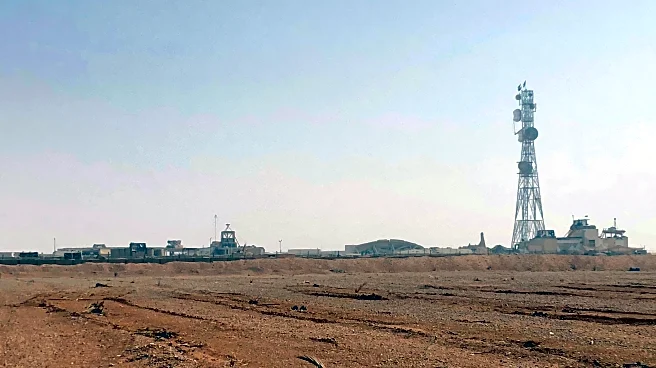What's Happening?
Despite a significant drop in global wheat prices, Bangladeshi consumers are not benefiting from the decrease, as local flour millers and importers continue to raise flour prices. Global wheat prices have fallen to a five-year low, with prices 12-15% lower than a year ago, yet flour prices in Bangladesh have increased due to claims of dollar market volatility. The price of coarse flour has surged to Tk 55-70 per kg, while finer flour has risen to Tk 70-78 per kg. Experts have criticized the lack of government monitoring, suggesting that agencies like the Tariff Commission and the Directorate of National Consumer Rights Protection should investigate the matter.
Why It's Important?
The situation highlights the disconnect between global commodity prices and local market practices, affecting consumer costs and economic fairness. The increase in flour prices despite lower wheat costs suggests potential market manipulation or inefficiencies in the supply chain. This has implications for food security and inflation, as flour is a staple in Bangladeshi diets. The issue underscores the need for regulatory oversight to ensure fair pricing and protect consumer interests, which could lead to policy changes or interventions by government agencies.
What's Next?
Regulatory bodies may need to conduct thorough investigations into the pricing practices of flour millers and importers. This could involve scrutinizing import data, processing costs, and retail pricing strategies to ensure transparency and fairness. If discrepancies are found, corrective measures such as price controls or penalties could be implemented. Additionally, consumer advocacy groups might increase pressure on the government to address these issues, potentially leading to policy reforms aimed at protecting consumer rights.
Beyond the Headlines
The situation raises broader questions about market dynamics and the role of government in regulating essential commodities. It highlights the challenges of balancing free market principles with consumer protection, especially in developing economies. The case could serve as a precedent for other countries facing similar issues, prompting discussions on global trade practices and local market regulations.











